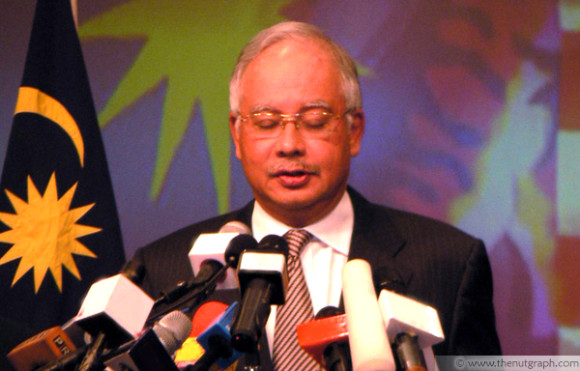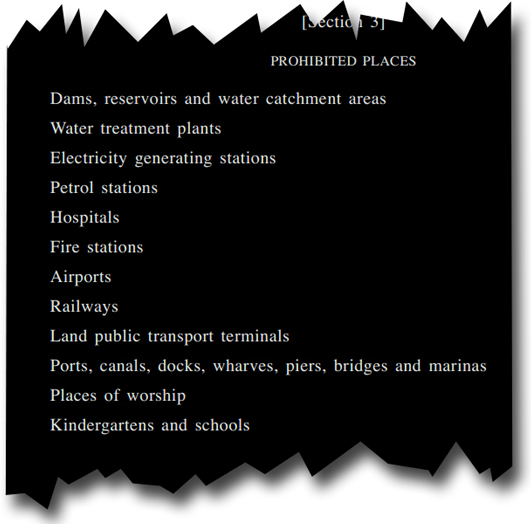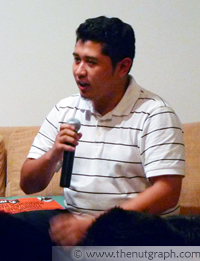IN Datuk Seri Najib Razak’s first speech as prime minister on 3 April 2009, he promised a comprehensive review of the Internal Security Act (ISA). Appearing to place human rights at the top of his reform agenda, he also announced the release of 13 ISA detainees and removed temporary bans on opposition publications Suara Keadilan and Harakah.
Two years later, on 15 September 2011, Najib announced the abolishment of the ISA, the Banishment Act and the Restricted Residence Act. He revoked three subsisting proclamations of emergency dating back to the 1960s and 1970s. He also announced amendments and reviews to the Printing Presses and Publications Act, and section 27 of the Police Act, which governs public assemblies.

As we head into the 13th general election since independence, it is time to review Najib’s human rights record. Have the bold promises made come to pass? Or have we really gone two steps forward and two steps back, and remained in the same place?
Forward and backwards
Najib’s September 2011 announcements felt like the beginnings of a fresh breeze of reform. He promised a functional and inclusive democracy “where public peace and prosperity is preserved in accordance with the supremacy of the Constitution, rule of law and respect for basic human rights and individuals’ rights”.
But in November 2011, the reality of Najib’s reforms began to be seen. While the Police Act’s requirement for a permit for assemblies of more than three persons was abolished, the Peaceful Assembly Act (PAA) was enacted in its place. This has imposed more drastic limitations on the freedom of peaceful assembly. Organisers need to notify the officer in charge of the police district at least 10 days in advance, ruling out spontaneous demonstrations. The police may impose terms and conditions, the scope of which may effectively nullify that very right. The Act also prohibits assemblies within 50 metres of a long list of places:

This severely restricts space for public assemblies in the Klang Valley, and many downtown and built-up areas. Assemblies in motion, defined as “street demonstrations”, are prohibited. Children below 15 and non-citizens cannot participate in public assemblies. Those under 21 are prohibited from organising public assemblies. Authorities have also shown the same enthusiasm as under the Police Act to investigate, arrest and charge people for breaches of the Act.
Students and democracy
As many university students are first-time voters this election, changes in their democratic rights have been critical. The government has a patchy record when it comes to students rights, with four Universiti Kebangsaan Malaysia students arrested in 2010 for allegedly campaigning in the Hulu Selangor by-election. The students faced disciplinary charges at their university. A court challenge to the University and University Colleges Act (UUCA), however, resulted in the Court of Appeal ruling that section 15(5)(a) of the Act was unreasonable and violated freedom of speech. The section prohibited university students from participating in party political activity.

In 2011, the government amended the UUCA to remove section 15(5)(a). Further amendments meant that university vice-chancellors were freed from the supervision of the higher education minister in terms of allowing on-campus activities at institutions of higher learning. The role of university students, a bedrock of vibrant political activity in the 1970s, was finally recognised and restored. This should bode well for the future of democratic development in our universities and in society at large.
But serious barriers remain. Since most students enter university at the age of 18 or 19, the PAA prohibits them from organising any peaceful assembly, whether within or without university campuses. University vice-chancellors continue to adopt a narrow and/or pro-government stance in exercising their discretion on gatherings in campuses.
This can be seen from the recent controversy surrounding the 8 Dec 2012 forum held at Universiti Utara Malaysia titled “Seiringkah mahasiswa dan politik?” or “Are students and politics compatible?”. The forum featured the now infamous “Listen, listen, listen” exchange between Sharifah Zohra Jabeen Syed Shah Miskin, the president of Suara Wanita 1Malaysia, and student KS Bawani.
Pro-government organisations are still given free reign and monopoly in speaking to university students on campus, often with near compulsory attendance. Meanwhile, forums featuring opposition politicians have been cancelled, ostensibly under government instructions. A level playing field for on-campus political activity in institutions of higher learning is, therefore, still a myth.
Moderation abroad, narrow-mindedness at home
Najib has made much of his Global Movement of Moderates initiative abroad, first introduced at his speech to the United Nations General Assembly in September 2010. He claims to want to unite moderates from different faiths to pursue or reclaim an agenda of peace, which has been hijacked by religious extremists.
Najib has travelled the world with this vision, even meeting Pope Benedict XVI in 2011 to “show that we are an inclusive government”. He also wrote a 2011 commentary in Australia’s Sydney Morning Herald, in which he referred to himself as “the prime minister of a progressive, liberal nation”.
But Najib’s actions at home tell a different story. When he returned from his visit to the Pope on 22 July 2011, Najib said to Christians: “We wish to tell our friends, the Malaysian Christians … if they respect us, we will also respect them.” Inclusivity, therefore, is dependent on the prior respecting of Malaysia’s Islamic leadership, and, by extension, the government’s official position on the various teachings of Islam.
And most recently, Najib maintained that “Allah” is strictly for Muslims because “what is right is always right”. As Najib’s government persists on appealing the 2009 High Court decision allowing non-Muslims to use “Allah” to refer to God, Malaysia appears to be the only Muslim-majority country in the world trying to prohibit non-Muslims from doing so. This issue has now become an item of distinct difference between the Barisan Nasional and Pakatan Rakyat, with the latter having no objection to the use of the term by non-Muslims.
Najib also has warned against the threat of “liberalism and pluralism”, despite these values being a mainstay of moderation. He also said that despite universal values being shared by all, there was a need to defend the Islamic faith, to which there must be “no compromise”.

In these three areas, Najib has equivocated and prevaricated, blown hot and cold, over-promised and under-delivered. He has sought to paint a broad, liberal and progressive canvas, but then smudged the scene with narrow-minded, conservative and regressive policies and law reforms.
How will it be in other areas of government? Will the real Najib Razak please stand up? ![]()
Andrew Khoo is an advocate and solicitor in private practice, and an aspiring columnist and commentator.

